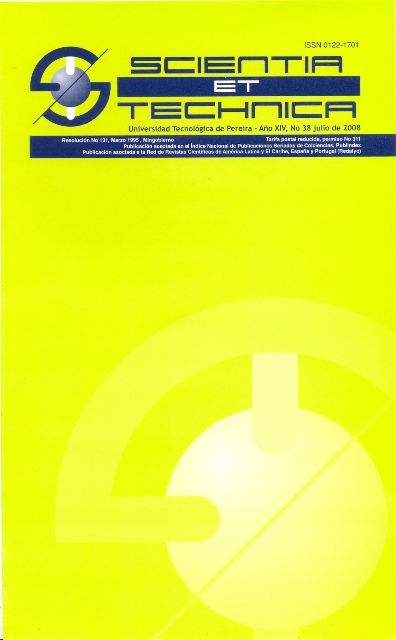Modulación pwm en fpga basado en máquinas de estado finito
DOI:
https://doi.org/10.22517/23447214.3813Abstract
La modulación por ancho de pulsos PWM, consiste en la generación de pulsos que varían en su ciclo útil de acuerdo con el valor de la señal de entrada. En este artículo se presenta una técnica basada en máquinas de estado finito FSM para modular PWM en dispositivos lógicos programables FPGAs. A la entrada se tiene una señal digital de tres bits y una señal de reloj, y a la salida se obtiene una señal con ciclo útil proporcional al valor de la señal de entrada con una frecuencia igual a 1/9 la frecuencia de la señal de reloj. La programación de la FSM se realiza en una herramienta CAE de Xilinx, la cual permite generar automáticamente el código VHDL, y finalmente se simula su funcionamiento.Downloads
Downloads
-
Vistas(Views): 3080
- PDF (Español (España)) Descargas(Downloads): 1574
Published
How to Cite
Issue
Section
License
Copyrights
The journal is free open access. The papers are published under the Creative Commons Attribution / Attribution-NonCommercial-NoDerivatives 4.0 International - CC BY-NC-ND 4.0 license. For this reason, the author or authors of a manuscript accepted for publication will yield all the economic rights to the Universidad Tecnológica of Pereira free of charge, taking into account the following:
In the event that the submitted manuscript is accepted for publication, the authors must grant permission to the journal, in unlimited time, to reproduce, to edit, distribute, exhibit and publish anywhere, either by means printed, electronic, databases, repositories, optical discs, Internet or any other required medium. In all cases, the journal preserves the obligation to respect, the moral rights of the authors, contained in article 30 of Law 23 of 1982 of the Government Colombian.
The transferors using ASSIGNMENT OF PATRIMONIAL RIGHTS letter declare that all the material that is part of the article is entirely free of copyright. Therefore, the authors are responsible for any litigation or related claim to intellectual property rights. They exonerate of all responsibility to the Universidad Tecnológica of Pereira (publishing entity) and the Scientia et Technica journal. Likewise, the authors accept that the work presented will be distributed in free open access, safeguarding copyright under the Creative Commons Attribution / Recognition-NonCommercial-NoDerivatives 4.0 International - https://creativecommons.org/licenses/by-nc-nd/4.0/deed.es license.



